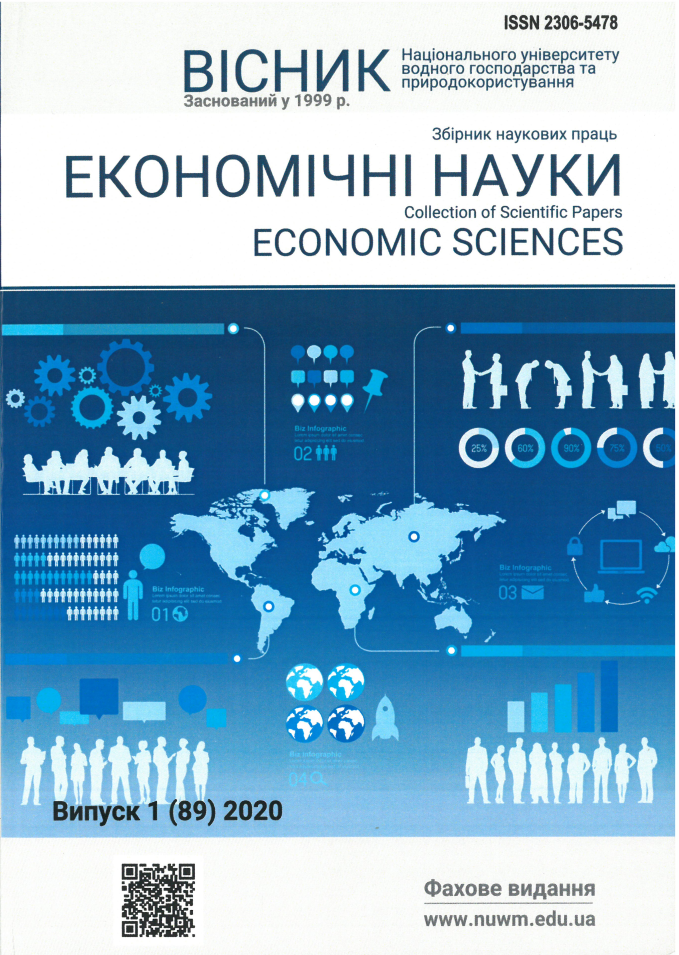COMPARATIVE ANALYSIS OF THE COMPONENTS OF SELFMANAGEMENT ACCORDING TO THE R. S. SHARMA’S MODEL BASED ON THE CHRISTIAN WORLDVIEW
DOI:
https://doi.org/10.31713/ve120202Keywords:
self-management model, constituents, comparison method and procedure, self-control methods, Christianity, Buddhism.Abstract
The paper analyses and compares the focal components of selfmanagement models, which are actively used by different people,including public figures, who are known worldwide. The authorsconducted a cross-cultural study of behaviours in the context of Hinduand Christian cultures, defining the nucleus of self-management andpersonal development for the representatives of the aforementionedcultures, their value orientations, as well as the centre of life, which,in its turn, is based on such fundamental principles as internalsecurity, life orientation, wisdom and self-control. The scholars testedtheir comparison of the following seven components of Robin S.Sharma’s self-management model, particularly: (1) thinking, thoughts,moods, desires; (2) mission, purpose of life; (3) application of aprecise self-control model (scientists refer to it as «self-regulation»);(4) willpower development; (5) time management (including thestrategy how to get more done in less time); (6) personal contributionto the lives of other human beings; (7) happy, joyful, rich, productiveand satisfying life; with components based on Christian ethics and theworldview of Eastern Orthodox Christians. The study revealedcommon and distinctive structural elements of the compared models.The authors evidenced the value and validity of the Christian model ofself-management, which has proven to have every reason andopportunity to compete conceptually and methodologically withvarious self-management models, particularly with the Buddhist ones. This, in its turn, testifies to the prospect and development of furtherresearch with regard to self-management in scientific terms, at leastbeing unambiguous for those regions where mentality and lifestyleare formed on the basis of the Christian worldview. The use of thecomparison procedure has laid the foundations for building a selfmanagement model based on Christian ethics. Furthermore, thefurther study of the noted model is surely appropriate given thenumber of followers of the aforementioned rite in the world at large.References
But H. Nashi liudy v Hollivudi. 10 pravoslavnykh «zirok». URL: https://rivne.church.ua/2015/12/02/nashi–lyudi–v–gollivudi–10–pravoslavnix–zirok/ (data zvernennia: 20.02.2020).
Korolova M. Zirky-buddysty. URL: https://tsn.ua/lady/zvezdy/zvezdy/zirki–buddisti–1211745.html (data zvernennia: 20.02.2020).
Saveliev Yu. B. Analiz porivnialnyi u sotsiolohii. Velyka ukrainska entsyklopediia. URL: https://vue.gov.ua/Analiz_porivnialnyi_u_sotsiolohii (data zvernennia: 20.02.2020).
Netepchuk V. V. Samomenedzhment : navch. posibnyk. Rivne : NUVHP, 2013. 354 s.
Robin Sharma. URL: https://uk.wikipedia.org/wiki/%D0%A0%D0%BE%D0%B1%D1%96%D0%BD_%D0%A8%D0%B0%D1%80%D0%BC%D0%B0 (data zvernennia: 20.02.2020).
Kaluhyn R. Vse pro Robyn Sharma. URL: https://romankalugin.com/vse–pro–robin–sharma–skachat–vse–knigi–robin–sharma/ (data zvernennia: 20.02.2020).
Robin Sharma. Biohrafiia. URL: https://www.yakaboo.ua/ua/author/view/Robin_Sharma/ (data zvernennia: 20.02.2020).
Robіn Sharma. Bіohrafіia. URL: https://24smi.org/celebrity/99387–robin–sharma.html (data zvernennia: 20.02.2020).
Robіn S. Sharma. Monakh, kotorуi prodal svoi «ferrarі» / per. s anhl. K. Vronskіi. Іzd. Sofіia, 288 s.
Vіtovіtskіi F. Kakovу tvoі mуslі, takova і zhіzn tvoia... / per. s serb. A. Lohіnova. Mіnsk : «Іzdatelstvo Dmіtrіia Kharchenko, 2014.
Dobrotoliubіe v 5 t. 2-е izd. ster. Kramatorsk : Tіrazh 51, 2009. T. 3. 560 s.
Zatvornіk F. Strastі і borba s nіmі: vуderzhkі іz tvorenіia і pіsem / sostv. іhumen Feofan Kriukov. M. : Danіlovskіi blahovestnіk, 2003. 328 s.
Beseda prepodobnoho Serafіma Sarovskoho o tselі khrіstіanskoi zhіznі s sіmbіrskіm pomeshchіkom і sovestnуm sudei Nіkolaem Aleksandrovіchem Motovіlovуm (іz rukopіsnуkh vospomіnanіi N.A. Motovіlova). URL: http://serafim.kiev.ua/index.phpoption=com_content&view=article&id=100&Itemid=17 (data zvernennia: 20.02.2020).
Tkachov A. Mу vechnу! Dazhe eslі еtoho ne khotіm. Rodnoe slovo, 2009. URL: https://azbyka.ru/fiction/my–vechny–dazhe–esli–etogo–ne–xotim–kniga–1–protoierej–andrej–tkachev/ (data zvernennia: 20.02.2020).
Kovі S. R. Sem navуkov vуsokoеffektіvnуkh liudei: moshchnуe іnstrumentу razvіtіia lіchnostі / per. s anhl. 12-e іzd., pod. M. : Alpіna Pablіsher, 2017. 396 s.
Protopresviter Foma Khopko. 55 pryntsypiv khrystyianskoho zhyttia. URL: https://pravoslavie./112409.html (data zvernennia: 20.02.2020).
Sihutin A «Bodrstvuite, stoite v vere, budte muzhestvennу, tverdу» beseda s іereem Aleksіem Zaitsevуm. URL: https://pravoslavie.ru/33061.html (data zvernennia: 20.02.2020).
Arkhanhelskіi H. U vremenі v plenu. Foma. URL: https://foma.ru/u–vremeni–v–plenu.html (data zvernennia: 20.02.2020).
Horoshkova N. V chem smуsl zhіznі, kak naitі svoe prednaznachenіe. URL: https://pravlife.org/ru/content/v–chem–smysl–zhizni–kak–nayti–svoe–prednaznachenie (data zvernennia: 20.02.2020).
Suhutіn A. O knіhe A. Lorhusa. Knіha o schaste. Pravoslavnуi vzghliad na schaste. Vestnіk : hazeta. № 4. 2014. URL: http://www.pafnuty–abbey.ru/publishing/7683/ (data zvernennia: 20.02.2020).
Nezghovorova H. Diietoloh rozpovila, chym zahrozhuie absoliutna vidmova vid produktiv tvarynnoho pokhodzhennia. URL: https://1plus1.ua/snidanok–z–1–1/novyny/mifi–ta–pravda–pro–siroidinna–poradi–dietologa (data zvernennia: 20.02.2020).

